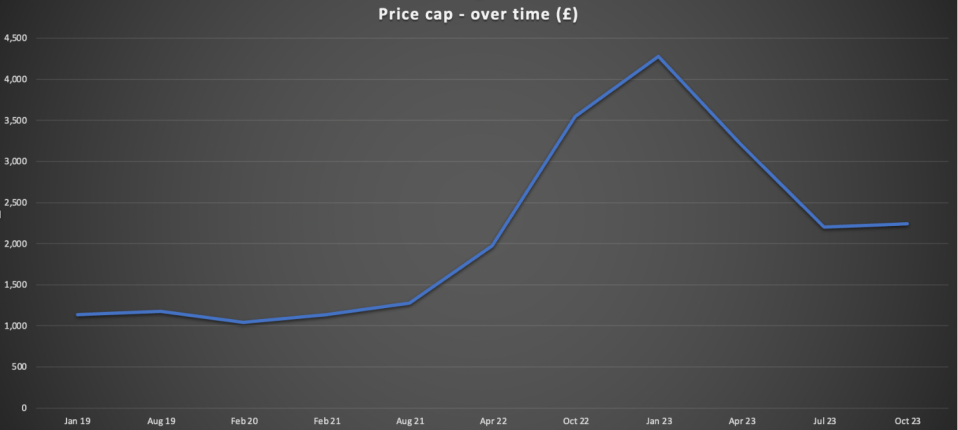Good Energy joins industry calls for a social tariff to protect vulnerable customers

Momentum is growing in the energy sector for a ‘social tariff’, with Good Energy becoming the latest supplier to call for more targeted support for vulnerable customers.
Good Energy boss Nigel Pocklington told City A.M. that “a social tariff is the route to go” if the government wants to shelter lower-income households from sky-high energy bills.
He said: “A social tariff seems to be the most effective way of dealing with what is an affordability crisis for vulnerable, poorer households.”
Pocklington believed the government should pivot from the Energy Price Guarantee, and instead focus support on households that will be most exposed by high prices.
In his view, it would be a mistake to be “offering people like me a subsidy on their energy bills for forever in a day” – through the wide-scale subsidies provided in the current support package for the next 15 months.
This follows Ovo Energy’s public backing of a social tariff last week, with the Big Six supplier urging the government to identify vulnerable customers with the help of community groups, and provide a long-term cap for energy bills aimed at people who needed it.
Chief executive Raman Bhatia told City A.M. lower-income and vulnerable households still need “ongoing help with their energy bills.”
Alongside energy firms, market watchdog Ofgem has announced it is also considering the viability of a social tariff.
In a blog update on Ofgem’s website earlier this month, chief executive Jonathan Brearley argued the industry “does not have time to waste,” and has called for a “serious assessment of a social tariff” to help manage the winter crisis.
“If it can be made to work, this could tackle the root cause of this issue and the distress that many customers are in this winter,” he said.

Social tariff push comes with energy sector under scrutiny
The push for a social tariff comes amid growing concerns over the potential lack of support for lower-income households from April, with Chancellor Jeremy Hunt set to raise the Energy Price Guarantee (EPG) threshold from £2,500 per year for average use to £3,000 per year in two months’ time.
This will mean households face a £500 per year hike to the energy bills, alongside the conclusion of the £400 reduction in the Energy Bills Discount Scheme which ends in the spring.
The pressure on households has also brought the role of prepayment meters into focus.
Business Secretary Grant Shapps has been urging suppliers not to force customers unable to pay their debts onto prepayment meters.
Shapps singled out Good Energy alongside Utilita and Scottish Power as suppliers that had not done enough to encourage lower-income customers on prepayment meters to use their vouchers to redeem £400 energy bill discounts.
In response, Good Energy argued that it only had 350 prepayment meter customers – which it had been in consistent contact with, and that they do not install traditional prepayment meters because they did not consider the effective for supporting customers.
Pocklington added: “I suspect what you’ve got here is, as ever, politics at work. There is a fundamental affordability problem in energy, which the government, has done quite a lot to try and mitigate. But for some of the poorest households, there’s still a problem.”